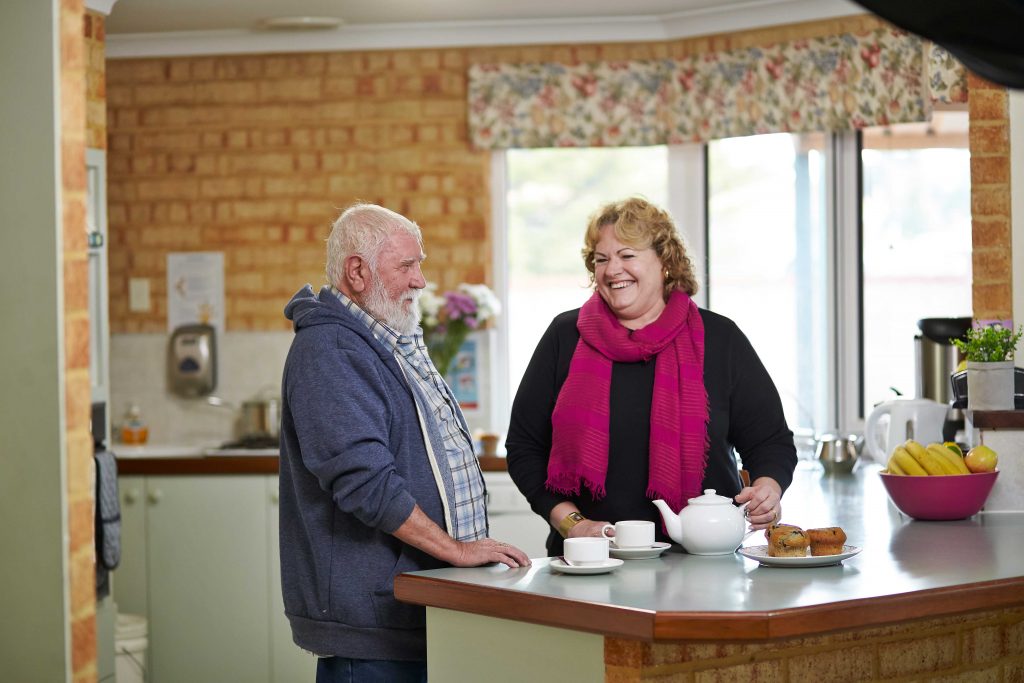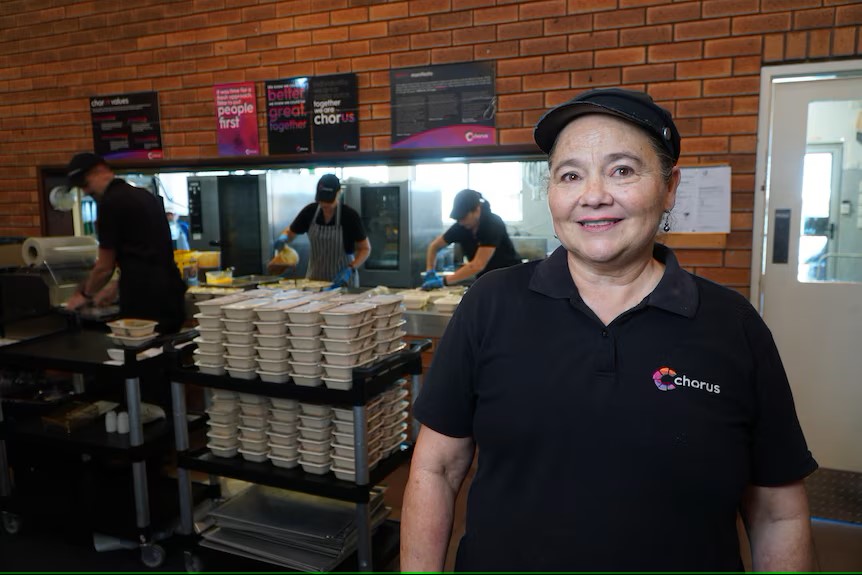Helping your parent understand it’s time to choose aged-care support services can be difficult.
The conversations are often met with resistance. Perhaps your parent doesn’t “want to cause any fuss”. Perhaps they feel they don’t need the help. Or perhaps they feel it marks a tipping point they’d rather not reach — a sense of “the beginning of the end”.
If any of these situations sound familiar, or if you’re just looking for advice on how to support your loved one that it’s time to accept a little help around the house, this article is for you. It’s based on our best advice and first-hand experience.
1. Have an honest conversation early

Have an honest conversation (Designed by pressfoto / Freepik)
If you possibly can, it’s a good idea to “plant the seed” about in-home support services before your parent needs them. Having this conversation early can help prevent that “beginning of the end” dread.
Ask them what their thoughts, plans, hopes and fears are for their lifestyle as they age. For example:
- Do they want to stay in their home as long as possible?
- Would they accept some support in order to make that happen?
- What do they worry about not being able to do for themselves anymore as they grow older?
Then ask them at what point they think they’d be ready to accept support. For example, if they can’t clean the house as well as they’d like, or if they can’t confidently stand in the shower.
An honest and empathetic early discussion means everyone is on the same page. But, just as importantly, it means the conversation has started so it will be easier to continue it again later.
What if it’s too late for an early conversation?
If that’s not possible — if you’re at a point where you believe your parent needs support — then this conversation becomes more urgent. It may be that your parent will be more reluctant to discuss the idea, but it’s still a really useful first step if. Some of the tips below will give you ideas for opening up a conversation.
2. Look for a natural opening
If an opportunity for a conversation opens up, take it. That way it will feel more natural.
For example, if you notice your parent hasn’t weeded the garden lately, yet they’ve always been fastidious about it, it’s a great opportunity to suggest getting someone in once a week or once a month to help out.
If an injury means they’re struggling with everyday chores (perhaps a bad shoulder means they can’t put clothes on the clothesline, or a bad hip means they can’t vacuum or mop the floor) that’s also a natural opening to start a conversation.
Sometimes it’s useful to use a third-party example to raise the topic of in-home aged-care support: “My friend’s mum has someone come once a week to sweep and mop her floors. Maybe you could think about it…”
3. Sell the benefits of in-home aged-care support
The whole idea behind in-home aged-care support is it enables people to live independently in their homes for as long as possible.
- You get to stay in your home, instead of moving to a care home
- It’s easier to stay connected to your friends and community
- Your level and kinds of support can change according to your needs
- You’ll get help to do the things you’re finding difficult
- You get access to a huge range of services.
4. First, talk to the parent who needs support the least
Often, in situations where both parents are living together, one will need more support than the other. That parent ends up not only taking on a carer role but doing absolutely everything else that needs to be done around the house.
Even if the other parent is healthy, that care can take a real toll. While the caregiving parent might think they can cope at the moment, caring long-term can have a detrimental effect on their health, too. It’s common to hear of the caregiving partner’s health suffering under all the pressure and exertion.
Take the parent who least needs in-home aged-care support aside and have a conversation with them about how accepting help is for their benefit, too.
5. The “be prepared” strategy
If your parent believes they don’t need in-home aged-care services just yet, you might want to suggest that that’s exactly the point: They may not need help yet, but the assessment process can take a long time and they might need it by the time they get it.”
This can work well in situations where a parent has received a diagnosis of a degenerative condition, like dementia.
6. Flip the conversation so it’s about you
If your parent won’t accept help for themselves, maybe they’ll do it for you?
Let them know you’re aware they don’t necessarily need this help yet, but you’d be more comfortable if they accepted it. Perhaps you live far away or can’t be there to help as much as you like, or your own health isn’t great, or you would just feel better if you knew they had someone they could rely on.
7. Show the alternative
As mentioned above, the practical alternative to in-home support is moving into a residential aged-care home.
Homes can be really lovely communities where residents enjoy a very happy life, but if given the choice most people would prefer to stay in their own home if possible.
Take your parent on a tour of some local residential aged-care homes, so they can assess what kind of care they feel would best suit them. It’s always good to make decisions about your care with your eyes open.
8. Shut down the money worries
Not wanting to spend money on in-home care services is a common response from parents, especially those on tight pensions (and especially for a generation that was taught to save and be responsible with money).
We know of one couple (both nearly 90) where the husband had received a dementia diagnosis but they didn’t want to accept support because it would eat into their “rainy day fund”.
“Well if this is not a rainy day, when is?” their daughter said.
What finally convinced them was being told they’d paid taxes all their life and were entitled to the support.
Have the conversation about money. Don’t shy away from it. Explain how these kinds of support services are funded and what impact they will actually have on your parents’ finances, and remind them of just what they get (including being able to live independently at home).
9. Get people they trust to join the cause
Sometimes elderly parents don’t want to listen to their kids any more than young kids want to listen to their parents.
Rallying a few allies to your cause can be a good way to get results.
Chat to other family members, your parents’ friends, even the family doctor, and encourage them to discuss the need for in-home support with your parents.
Hearing a consistent message from people they love and trust might be enough to convince them.
10. Go with the “foot in the door” option
It can be helpful not to paint in-home care as a permanent option, but as something to help out “for now”.
This can be particularly useful if your parent is going in for a big operation and won’t be able to look after themselves independently for a while afterwards, or if they’ve had a fall or some other medical emergency and are convalescing.
The parent can usually see that a bit of help in these situations is both handy and sensible. Then once they’ve experienced in-home care services, and understand what is available to them, they may choose long-term support.
For information on our in-home aged-care support services, get in touch on 1800 264 268 or visit chorus.org.au.






